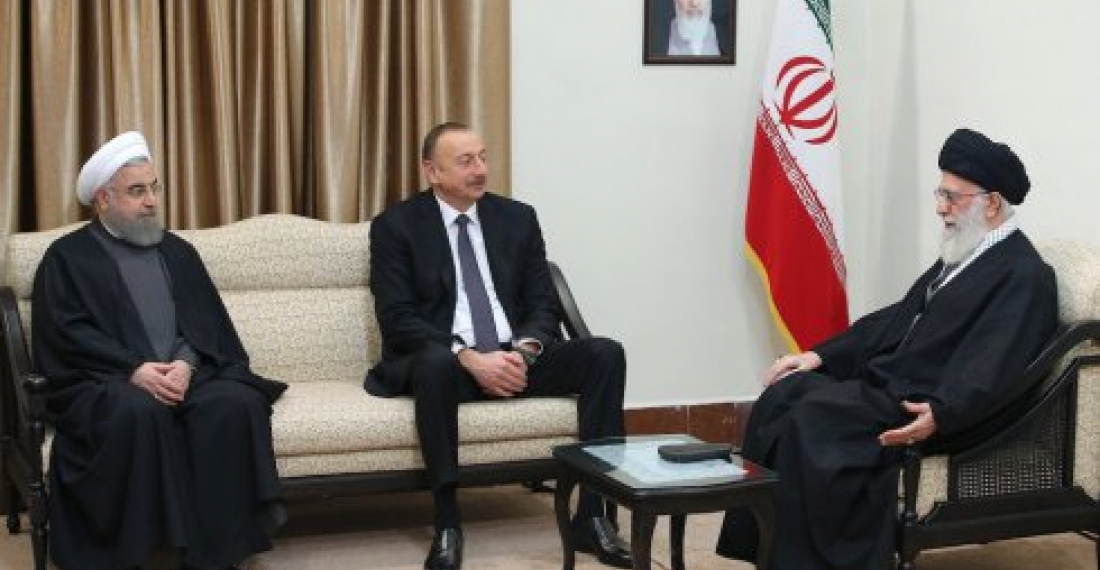The Presidents of Iran and Azerbaijan have hailed the good relations between their two countries and said that they looked forward to ever expanding co-operation. President Ilham Aliev of Azerbaijan arrived in Tehran on Sunday on an official visit. He was greeted by Iranian President Hassan Rouhani and other high level officials. He later met the Iranian supreme leader Ayattolah Khamanei. This is the third official visit of the Azerbaijani President to Iran in so many years.
The Iranian President described Iranian-Azerbaijani relations as "friendly, brotherly and strategic", and said that they had developed a lot over the last three years. The two sides have recently signed a number of agreements, and two more were initialled during the visit.
Iranian media quoted President Aliyev as saying that "Our relations have been built on ancient history, culture and common religion. We have established very good cooperation on this solid basis. Our political relations are at a high level and we support each other in all international organizations."
Currently Iran and Azerbaijan are working on a number of major joint projects, including a mega rail project which increases connectivity between India, Iran, Central Asia, Russia, and Europe, what Aliyev called a "historic and important" move which benefits the whole region. The corridor is expected to connect Northern Europe to Southeast Asia through their territories. According to preliminary estimates, the overall capacity of the rail link will be 1.4 million passengers and 5-7 million metric tons of cargo a year.
source: commonspace.eu with agencies
photo: President Ilham Aliyev of Azerbaijan in Tehran with the Grand Ayattolah Khamanei and President Rouhani (picture courtesy of Tehran times)






